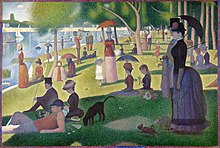Grammar Explorers in Primary Languages
Getting to grips with grammar in primary language learning is so important!
This week I have delivered staff CPD ,primary NQT CPD and subject coordinator CPD and we have considered the exploration of grammar in the primary learning context.
The more I talk with my colleagues, the more they tell me that their children ask about the patterns they see, want to manipulate language and want to be able to understand,say and write more! I find this fabulous!
It has always been the case!
Quite a few years ago I worked on the idea of "language detectives".... now in light of the new DFE POS and the requirement to "understand basic grammar", I think it's time for our young learners to become "language explorers" too!
It is the doorway to independence and confidence in their ability to understand and communicate effectively in foreign languages!
You will notice that I have said "getting to grips with grammar in
primary
languages".
I acknowledge and accept that as the Expert Subject Advisory Group to the Government suggests in " Assessment in Modern Foreign Languages " children at the end of KS2 should be "Secondary ready".
I believe though that primary language learning must be about a consistent primary approach to language learning,building ultimately to quality transition into secondary language learning.
Remember there are four years in KS2 in which to explore the grammar of the language.
The "Grammar Stepping Stones" I shared last year,seek to give teachers some guidance on when and how in KS2 to work with
,
,
- and to consider the progress that can be made over two, three , four years.
Remember that "stepping stones" require careful thought out movements and you can go back and retrace your steps on stepping stones too!

Considerations of primary grammar explorations!
- Careful and clear explanations of grammatical structures and terminology can take the fear factor away for lots of primary classroom teachers.Once a teacher is clear about masculine and feminine (neuter) nouns and understands the terminology such as definite and indefinite article, first second third person singular and plural , paradigm ...then the teacher too wants to be a grammar explorer!
- Just like the children,teachers need to explore the world of grammar step by step.I train and support lots of classroom teachers.What is remarkable,is how once they understand this terminology,they become great facilitators of primary grammar exploration! Here is some food for thought- a quote from a primary class teacher at a staff meeting CPD yesterday evening "I liked languages and if someone had made the grammar as clear as the grammar we have explored this evening I think that I would have continued learning a language"
- Teachers need to consider how and when to plan for exploration of grammar in primary school in a manner that is age and stage appropriate.We need to share examples with them and give them time to think of the ways they can apply the basic grammatical exploration strategies to their own language learning content and contexts.
- We need to provide the learners with primary appropriate content and contexts within which to explore the grammar focus.
- Grammar explorations in primary language learning can be so exciting and creative!The primary learning environment allows for dynamic explorations-not on one's own but sharing ideas and ways to be "grammar explorers"
- Don't forget the primary in grammar explorations! Think of ways to explore grammar to suit the learning preferences of all your children- building, drawing, singing, acting, through PE ,creating, discussing ... and make it primary successful explorations.
- Primary colleagues should see themselves as the facilitator of grammar explorations.
- Think of the process as well as the creative outcome! Make the stages of the process as learner friendly , step by step engaging the learner in enquiry about how and why a pattern is being formed.
Here are the activities that I am sharing with different colleagues this week.
- I hope that the activities are stepping stones to help them facilitate grammar exploration in dynamic ways with young language learners!
- I hope that colleagues don't see the activities as static and set in stone but that they can manipulate and adapt ideas to suit the content and contexts that they are exploring.







